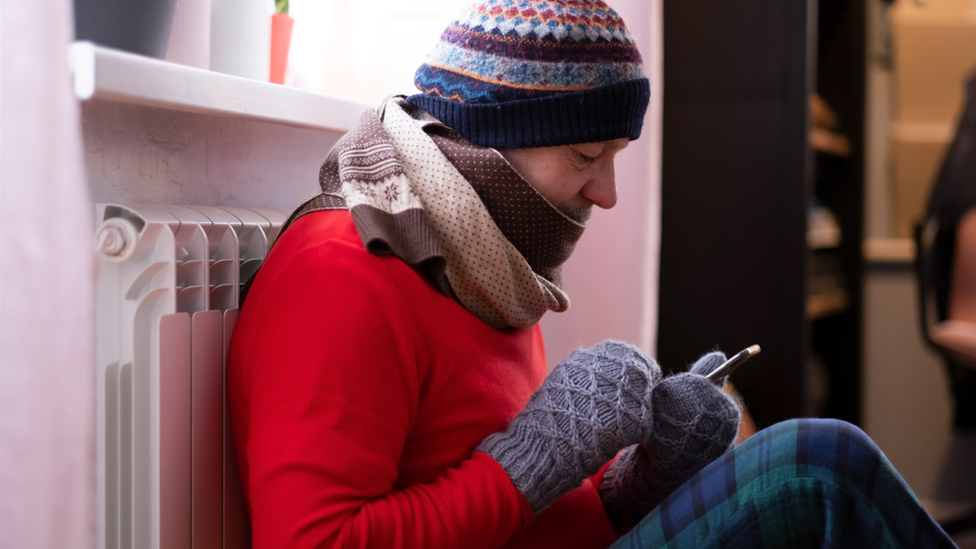Energy prices: Businesses 'struggling to survive' as bills rise
- Published
- comments
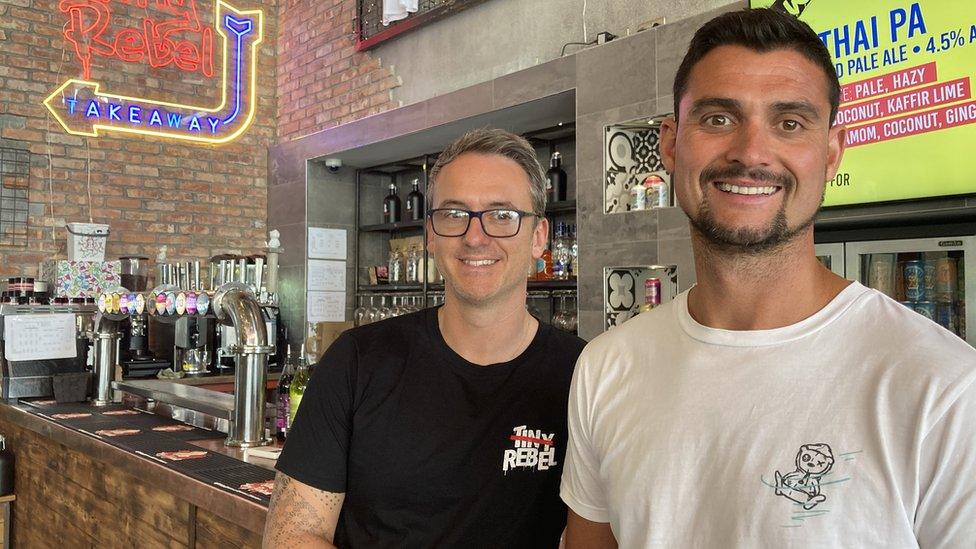
Brad Cummings (right), pictured with Tiny Rebel co-founder Gareth Williams, says energy costs for Tiny Rebel brewery are "huge" and out of the firm's control
A "relentless rise" in energy bills could force some hospitality businesses to close, with one brewery owner saying their costs have almost tripled.
Brad Cummings, co-founder of Tiny Rebel, said energy costs alone were up "200 to 300%".
Wales' Economy Minister Vaughan Gething called on the UK government to use "powers only they have" to intervene.
The two candidates for the prime minister's job signalled they would offer help if elected on 5 September.
Industry experts warned Christmas and winter wedding bookings were down as people cut back on costs, with one business owner saying he had decided to temporarily shut some of his hotels and restaurants as energy costs continued to rise.
Mr Cummings, of Newport-based brewery and bar Tiny Rebel, said the business faced "huge costs that are out of our control".
"Off the back of the pandemic, off the back of Brexit, you've got aluminium prices going up, you've got cardboard prices going up," he said.
"We've had issues with staffing across the UK."
The group's flagship bar is located in a huge warehouse, with lighting, large air conditioning units, cellars and the kitchen all requiring a lot of energy.
On the manufacturing side, gas boilers, lighting and equipment to brew beer are all costly.
'13,000 jobs at risk'
The firm invested in solar panels on the bar and brewery's roof over the past six months as part of its efforts to operate more sustainably.
It has also started turning off fridges in its bars and putting them on timers and made its cellars more energy efficient, but the pressure is significant.

How is the rising cost of living affecting you? Get in touch.
WhatsApp: +44 7756 165803, external
Tweet: @BBC_HaveYourSay, external
Please read our terms & conditions and privacy policy

David Chapman, Welsh executive director of Hospitality UK, told BBC Radio Wales Drive that 13,000 direct Welsh jobs were at risk if there was no help for the hospitality industry from the UK government.
The Welsh government said it was providing support to small-to-medium enterprises with £116m in non-domestic rates help in retail, leisure and hospitality sectors in 2022-23.
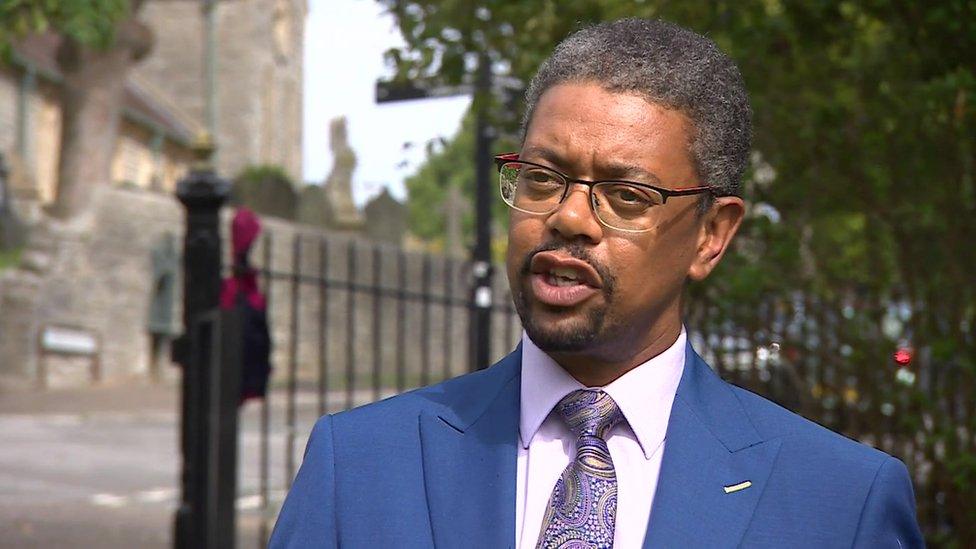
Vaughan Gething will meet business leaders to discuss the "unbearable pressures" they are facing
Mr Gething met with businesses leaders on Wednesday to discuss the issues they are facing.
He said the cost of living crisis was not just having a "significant impact" on families.
"We're also facing a cost of business crisis, with businesses across Wales facing increasingly unbearable pressures because of soaring energy and fuel bills," he said.
He also called on the UK government to adopt "measures to reduce inflation and provide the significant additional help people and businesses need".
"Unless they act now, they risk inflicting significant harm on the Welsh economy. This cannot be allowed to happen," he added.
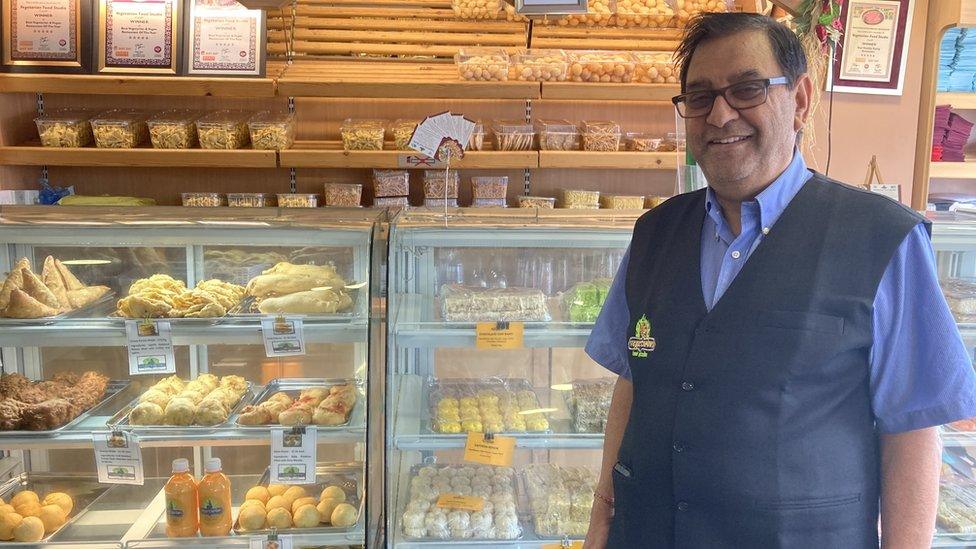
Raj Patel fears his business may not survive
'We may lose our business'
The picture is similar for Raj Patel, owner of Vegetarian Food Studio in Grangetown, Cardiff.
Monthly energy costs are now more than rent for the family restaurant and a necessary hike in prices has led to a drop in customers.
"The way things are going, we are going to lose our business that we have worked for 17 years so hard to build," Mr Patel said.
"If the government doesn't help us to reduce the cost, we can't see it surviving," he said.
Businesses are not covered by the energy price cap, and could face even sharper rises in costs than households.
Hotel owner and restaurateur Freddie Hitchcock owns seven hospitality businesses in south Wales and plans to temporarily close some of them this winter to help cut costs.
He expects the energy costs across all of his businesses to rise from £265,000 to £1.25m per year from this autumn.
'No magic wand'
"At the moment, we can't even get our current supplier to give us an energy quote for October as the markets are deemed too volatile," Mr Hitchcock told BBC Radio Wales Drive on Tuesday.
Based on the quotes he has so far had, energy prices across all of his businesses are set to rise six- or sevenfold.
"Unfortunately business isn't protected by the price cap. This equates to a rise from 3% of revenue to 13%," he said.
"There's isn't a magic wand to help us, but without government support we are going to have to make some difficult decisions about hibernating over the winter and hope there are green shoots when spring comes around," he added.
The winter wedding trade was already down as people have been hesitant in booking winter weddings due to Covid disruption of the last two years, he added.
"Christmas bookings are also slower than they'd ordinarily be as our guests are having to make difficult decisions on what they do with their money given their own bills are skyrocketing."
The UK government says it is taking other measures to support the hospitality industry, such a freezing alcohol duty and reducing contributions of National Insurance.
A UK government spokesperson said: "No national government can control the global factors pushing up the price of energy and other business costs, but we will continue to support Wales' businesses in navigating the months ahead.
"We have provided the Welsh government with its highest-ever funding settlement and cut taxes for businesses, including by increasing the Employment Allowance, which reduces national insurance contributions, and slashing fuel duty."
The Welsh government, meanwhile, said it was doing all it could, but that only the UK government had the tools to provide immediate help.
"That's why we continue to call on UK ministers to take urgent action now to reduce inflation and provide the help people and businesses need during these difficult times," said a spokesperson.

FROM AUSTRIA TO ABERTAWE: The eccentric lifestyle of Ludwig Wittgenstein
SAM SMITH PRESENTS STORIES OF HIV: From Terrence Higgins to today

- Published30 August 2022
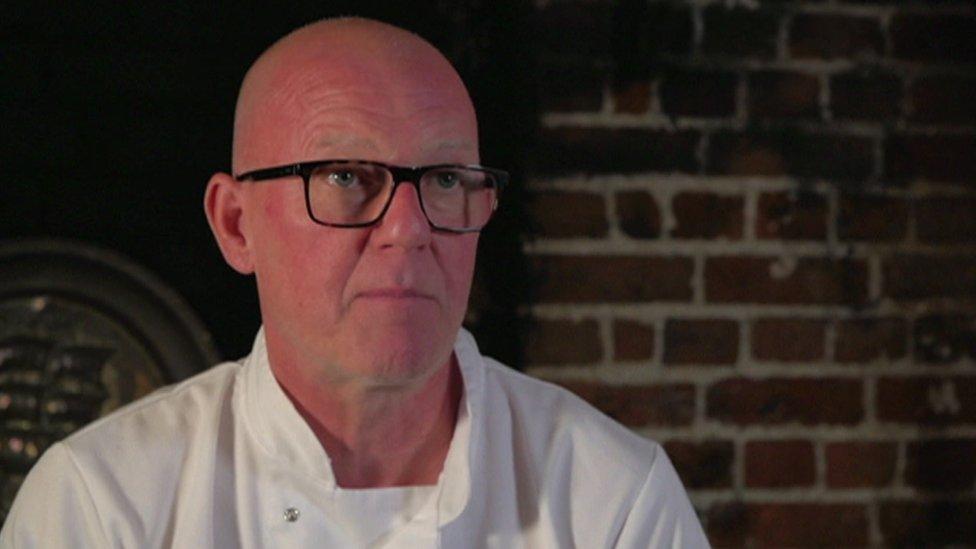
- Published29 August 2022

- Published28 August 2022
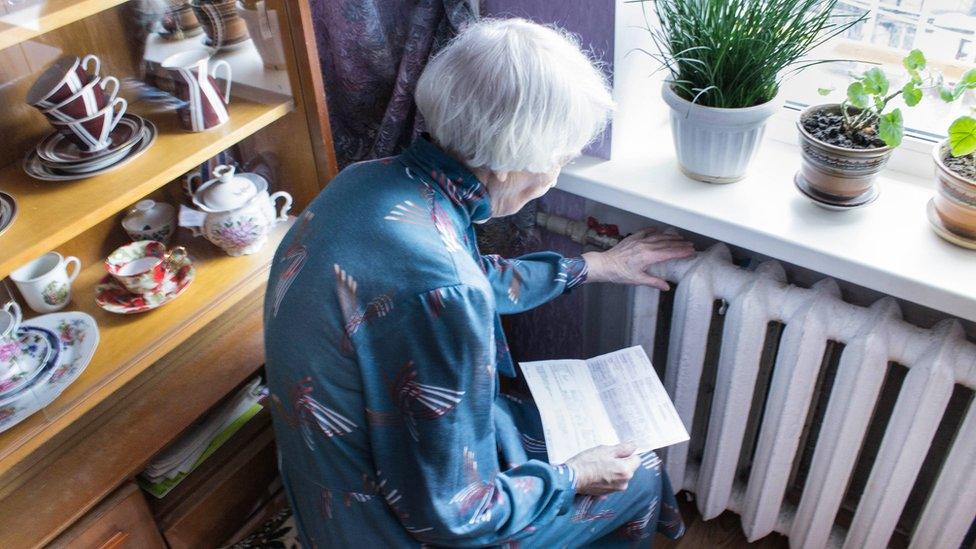
- Published17 August 2022
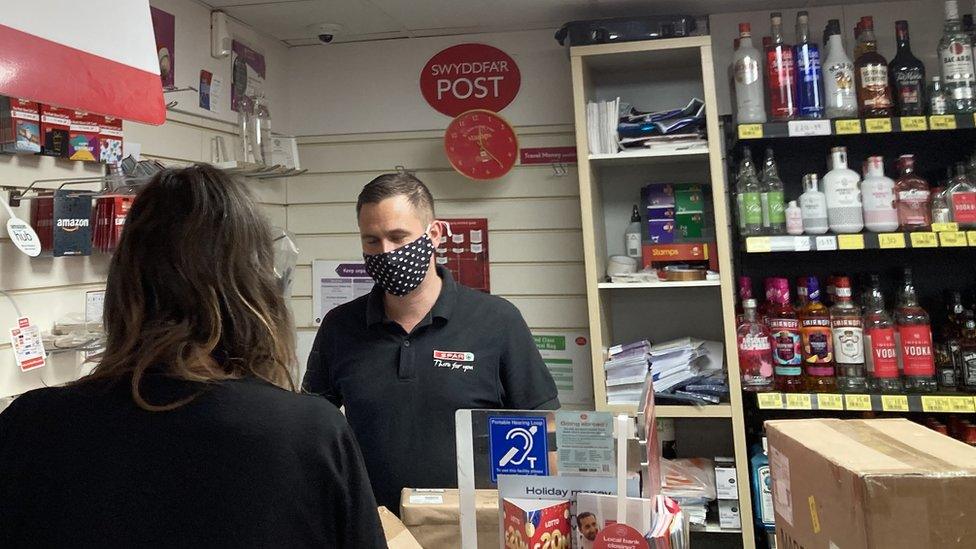
- Published26 August 2022
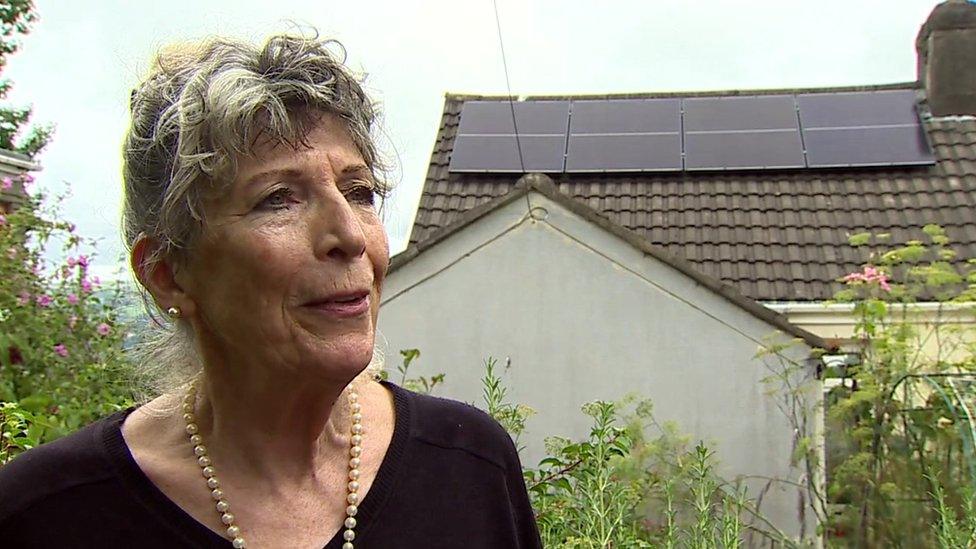
- Published26 August 2022
